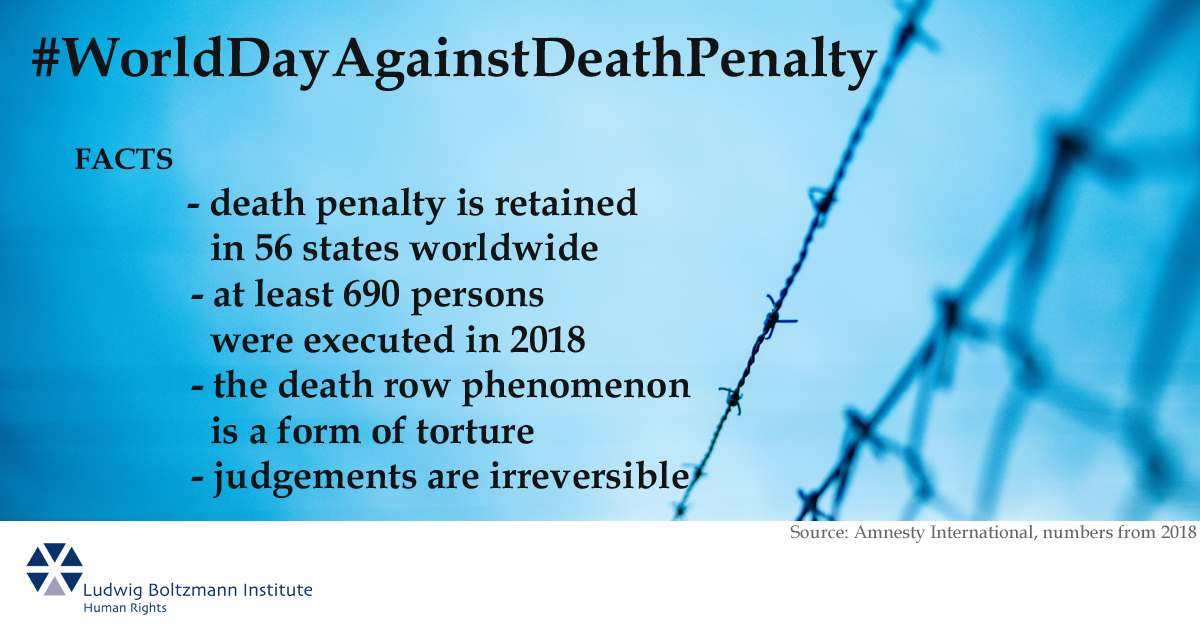#WorldDayAgainstDeathPenalty
A human’s death is irreversible. The death penalty is irreversible. Even if the execution is the result of a misjudgement, even if the judgment is the result of a torture-tainted unfair trial.
Afterwards, the convicted often await their fate for years on death row, not knowing when they would be executed. Many are held in solitary confinement for 23 hours a day.
At least this death row phenomenon as well as certain execution methods involving unnecessary suffering and indignity clearly constitute torture and thereby violate international law, as several domestic and international courts and the Special Rapporteur on Torture found. Meanwhile, there is growing consensus amongst states, courts and scholars that the death penalty per se always infringes the prohibition of torture or other forms of cruel, inhuman or degrading treatment and punishment.
Abolishing the death penalty would be an important step to prevent torture.
Underprivileged persons like those from weak socio-economic background and minorities are largely overrepresented among the executed. Thus, death penalty means also discrimination.
Despite slight trends towards improvement during the last 10 years, 56 countries worldwide retained the death penalty in 2018. 10 countries – China, Iran, Saudi Arabia, Vietnam, Iraq, Egypt, USA, Japan, Pakistan and Singapore – were the top executioners in the last year. At least 690 persons were executed in 2018.
Only 106, a little more than half of the states, have abolished death penalty by law. Another 28 abolished it in practice.
Numbers taken from https://www.amnesty.org/en/what-we-do/death-penalty
